Conflict
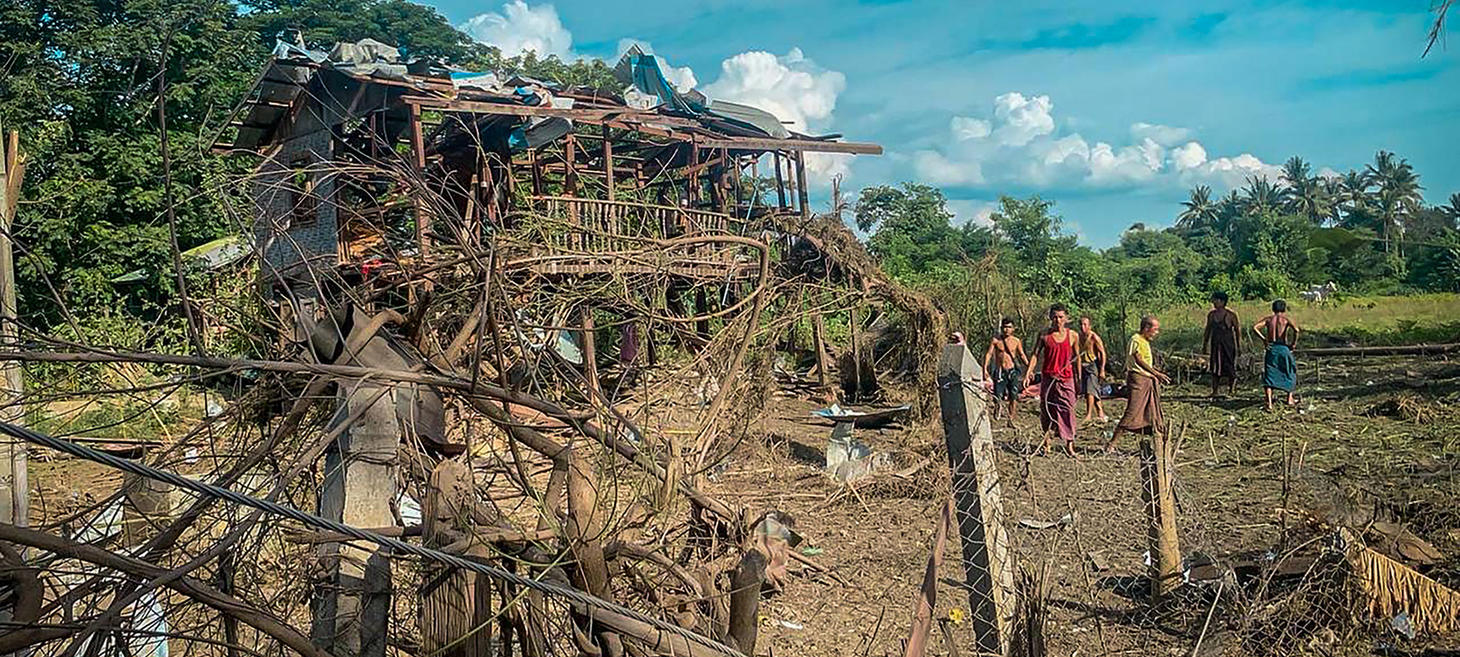
Myanmar Junta Airstrikes Kill 13 Civilians After Defeat in Mandalay Township
On Sunday, the Myanmar junta conducted airstrikes on a resistance-controlled township in Mandalay Region, resulting in the deaths of 13 civilians, including two children, and injuring many others. The attacks targeted Kan Taung and Ngwe Yone villages without prior military clashes reported in those areas. The Mandalay People’s Defense Forces (PDFs), aligned with the civilian National Unity Government, reported the use of banned cluster bombs in these strikes. These events followed the PDFs' recent territorial gains in the region, which prompted retaliatory bombings by the junta, escalating the conflict further. This violence is part of a broader pattern of junta responses to resistance activities, including previous indiscriminate bombings and arson in other townships, reflecting the severe ongoing conflict in Myanmar.
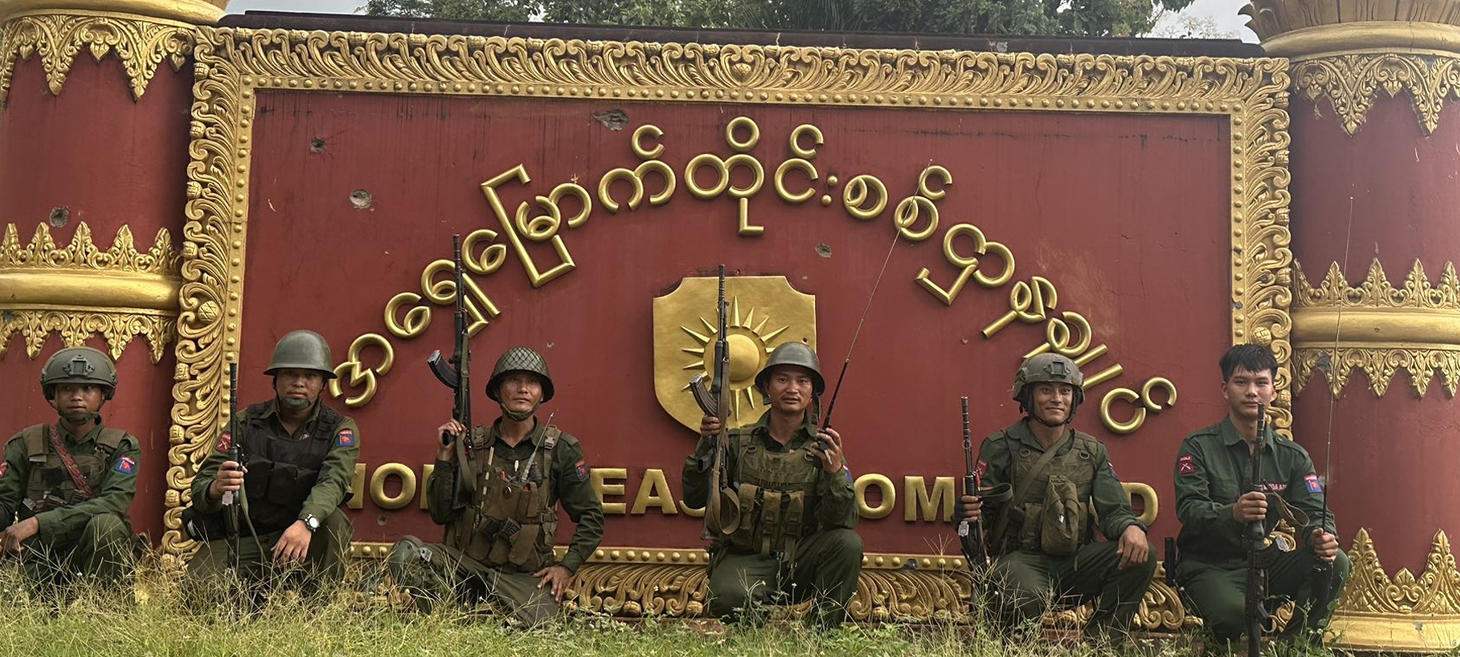
‘Domino Effects’: Historic Defeat of Myanmar Military Command Shakes Junta
On Saturday, the Myanmar National Democratic Alliance Army (MNDAA) and its allies captured the Northeastern Command in Lashio, marking a significant defeat for the Myanmar military and a historic victory for the resistance movement. This event is notable as it represents the first loss of a military command since the military's first coup in 1962. The fall of this command, which had a storied history of military achievements and strategic importance, particularly against communist forces and in securing the Muse-Lashio route to China, signifies a major blow to the military's morale and combat capabilities. This loss underlines the weakening state of the military in the face of ongoing revolutionary advances. It boosts the morale and confidence of anti-regime forces, potentially leading to further significant military and political repercussions.
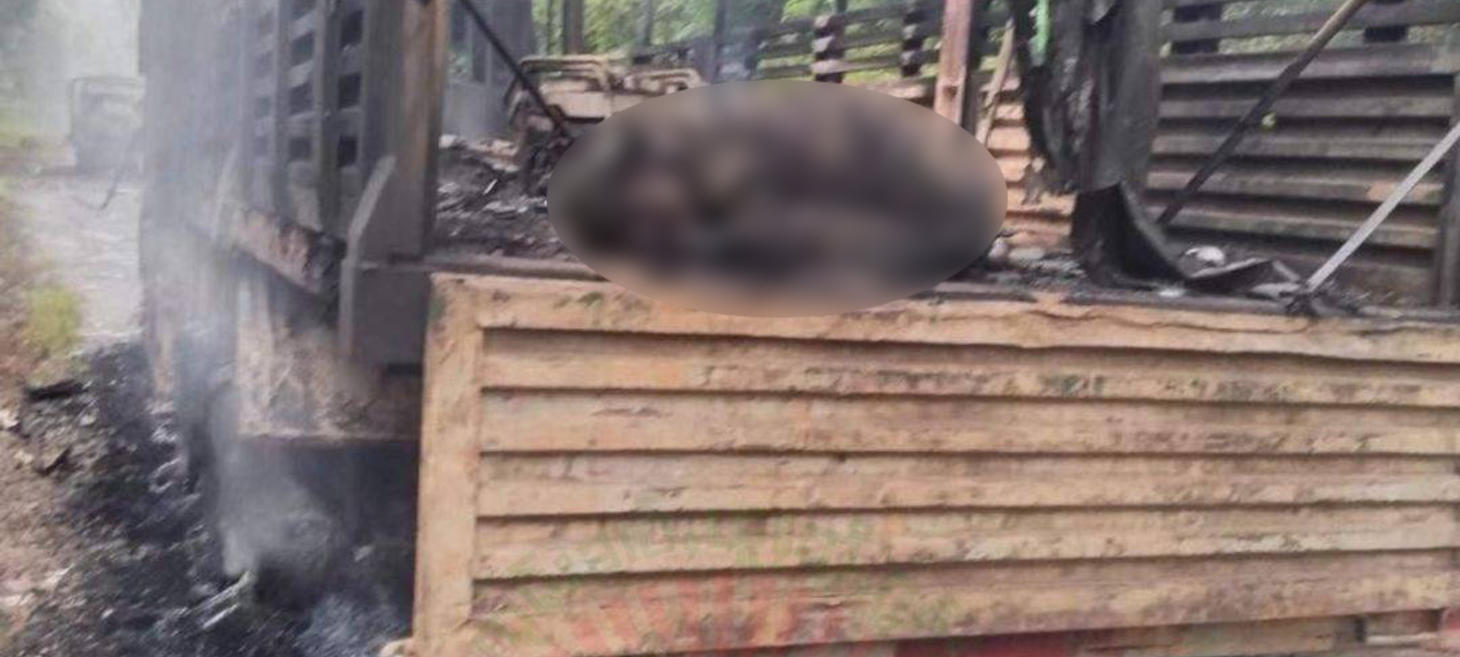
MNDAA Ambushes Junta Reinforcement Convoy Heading to Lashio, Inflicts Heavy Casualties
The Myanmar National Democratic Alliance Army (MNDAA), in coordination with the People’s Defense Force (PDF), executed a significant ambush on a junta reinforcement convoy in Lashio Township, Shan State, resulting in over 50 soldiers killed and more than 80 injured. The convoy, comprising about 400 soldiers in eight military trucks, was traveling from Tangyan Town to Nampawng Town when it was attacked between Manpang and Honar villages. This incident is part of a broader escalation in the region, marked by increased junta reinforcements and the strategic deployment of United Wa State Army (UWSA) troops in Lashio and Tangyan, indicating intensifying conflict dynamics in the area.
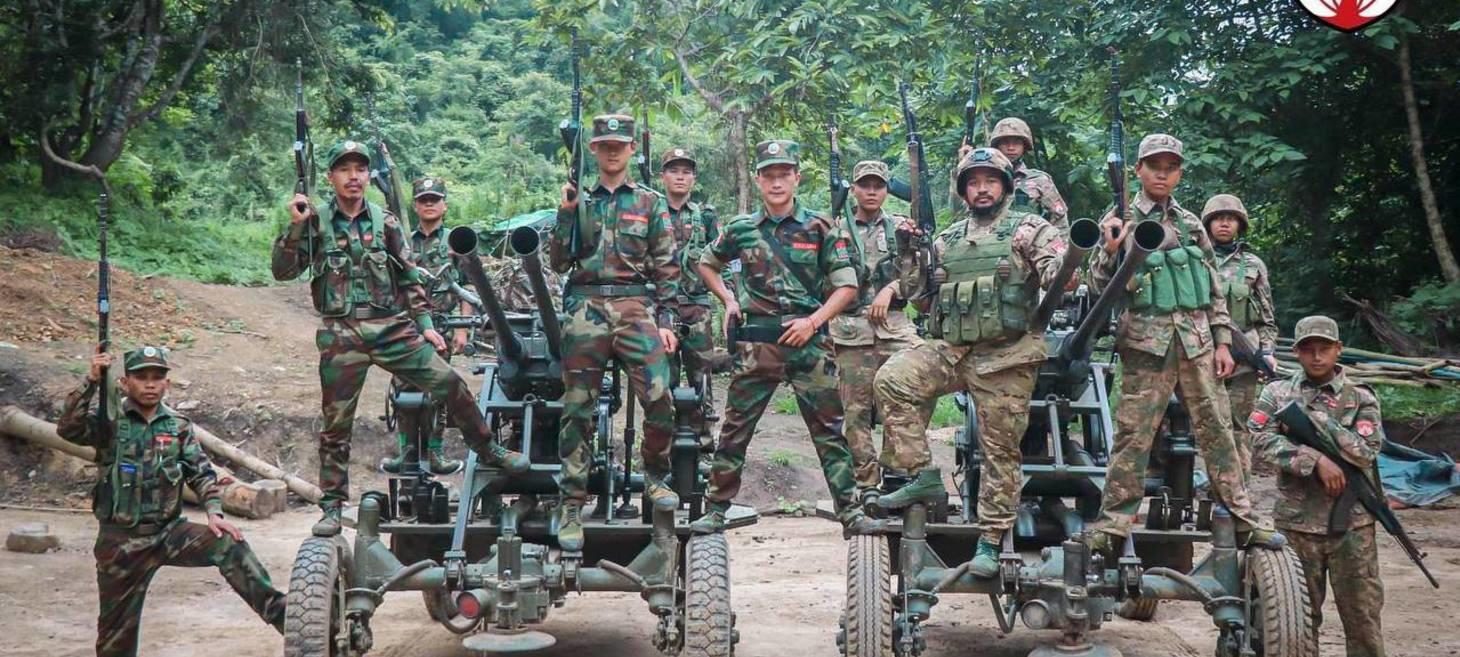
Resistance captures junta outposts in Mandalay Region as fighting spreads closer to city
Ongoing clashes in Patheingyi Township, nearing Mandalay, have escalated as resistance forces capture military outposts, leading to widespread displacement and fear among civilians due to airstrikes and artillery. The Mandalay People’s Defence Forces (MDY-PDF), aligned with the National Unity Government, have seized control of key locations, prompting a mass exodus from affected areas. Residents of Mandalay are bracing for the conflict's spread into the city, with reports of rocket attacks on military bases and increased military presence raising concerns. Amidst the chaos, civilians are stockpiling essential supplies, highlighting the growing anxiety over the impending violence. The situation underscores the broader instability across Myanmar, where once-safe havens are now threatened by the encroaching conflict and heightened security measures by the military council.
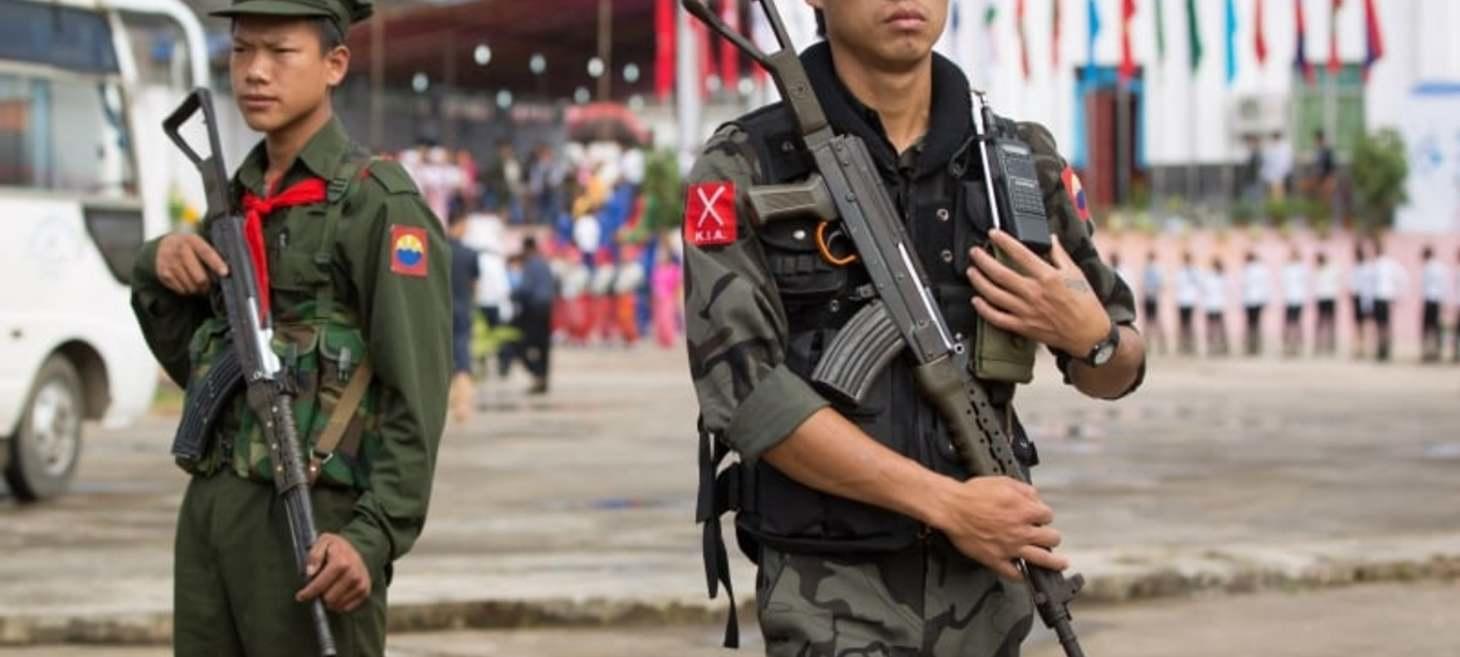
Myanmar junta troops intensify security in Myitkyina amid KIA attack rumours
Since July 31, junta troops from the Northern Military Command have intensified surveillance on all approaches to Myitkyina City, fearing an imminent attack by the Kachin Independence Army (KIA) aiming to seize control of the city, which serves as the headquarters for the junta's Northern Military Front. This heightened security measure includes strategic troop positioning, severance of all communication networks, and rigorous inspections of vehicles entering the city, with passengers required to disembark for checks. The junta's apprehension is evident in the increased military presence at key entry points and the artillery regiment's attack on Waingmaw town, where the KIA has strengthened its forces. Furthermore, the disruption of phone and internet services across Kachin State since July 21, with minimal restoration as of August 1, underscores the junta's efforts to control information flow amidst escalating tensions.
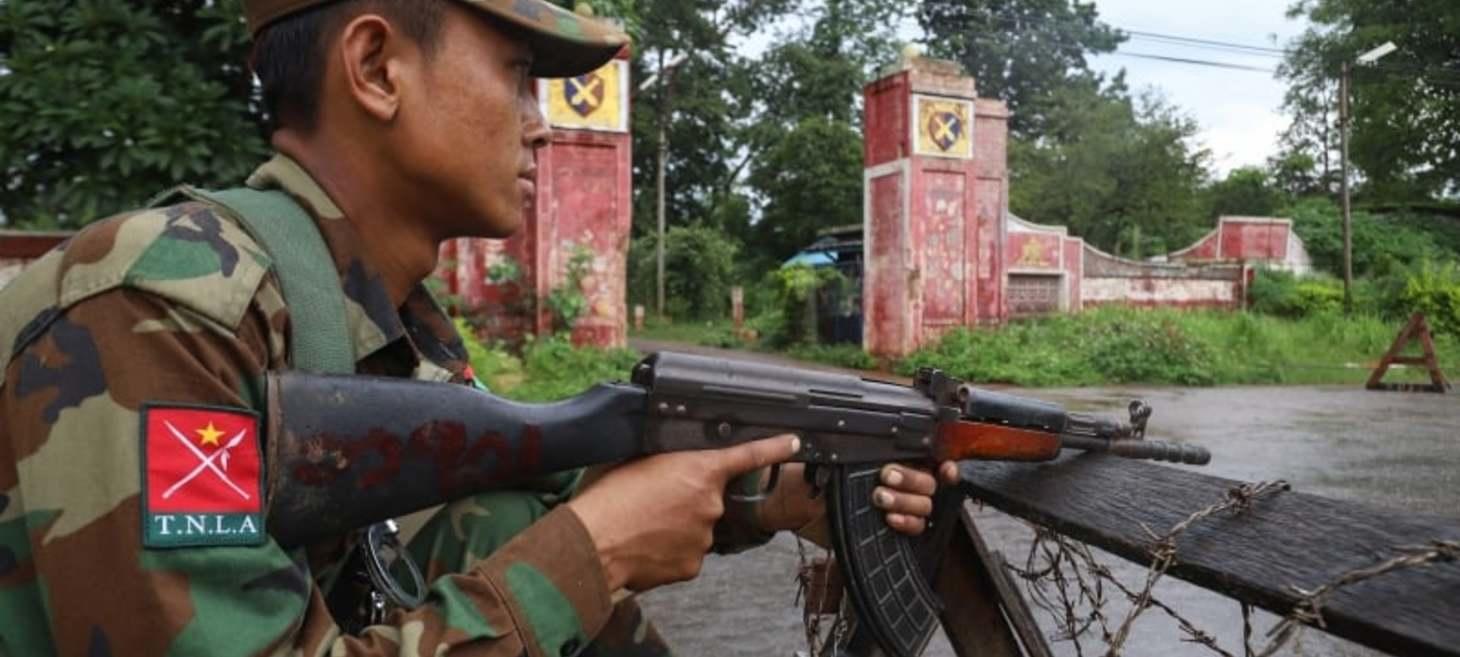
TNLA captures Momeik City, northern Shan State
On July 31, the Myanmar junta's Military Tactical Operations Command in Momeik City, northern Shan State, capitulated to the Ta'ang National Liberation Army (TNLA), marking a significant victory for the anti-junta forces. Local reports indicated that over 100 soldiers from the command, comprising three light infantry battalions, surrendered following intense TNLA assaults. Despite subsequent airstrikes by the junta near the surrendered command area on August 1, the status of the captured troops remains uncertain. This development led to the clearance of junta forces from Momeik Township, allowing over 400 residents to return home and the reopening of morning markets under the joint control of TNLA and People’s Defense Forces. The capture of Momeik City culminated the second phase of Operation 1027, initiated on June 25, which also saw the successful takeover of Mogoke and Naungcho earlier in July.
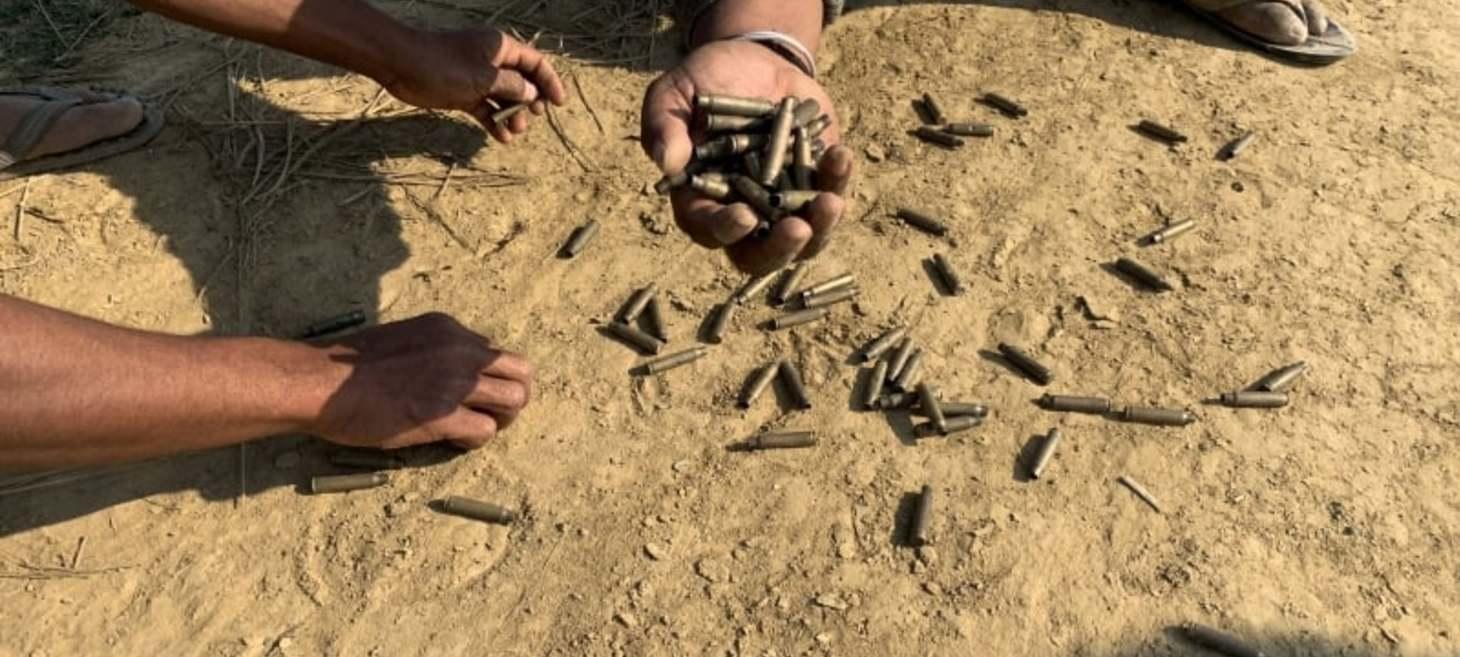
Arakan Army intent of targeting Myanmar junta hold-outs as it seeks to control Rakhine State
The Arakan Army (AA) has vowed to continue its offensive against remaining Myanmar junta military bases in Rakhine State, specifically targeting those in Taungup and Gwa townships, home to Military Operation Command No. 5. Recent intensified clashes in Taungup and the AA's successful capture of most of Thandwe township, strategically located between Taungup and Gwa, have prompted junta forces to adopt defensive measures, including bridge destructions in Gwa and reinforcement efforts via waterways. Despite junta attempts to reclaim Thandwe with heavy weaponry from naval bases and warships, ongoing skirmishes persist. In response to these developments, civilian maritime travel near Thandwe and Gwa has been indefinitely restricted starting August, with exceptions for urgent health or mandatory travel upon contacting local AA administrators. The AA, controlling significant territories in Rakhine and Paletwa, aims to liberate the entire Rakhine State, emphasizing its commitment to target military bases until they surrender.
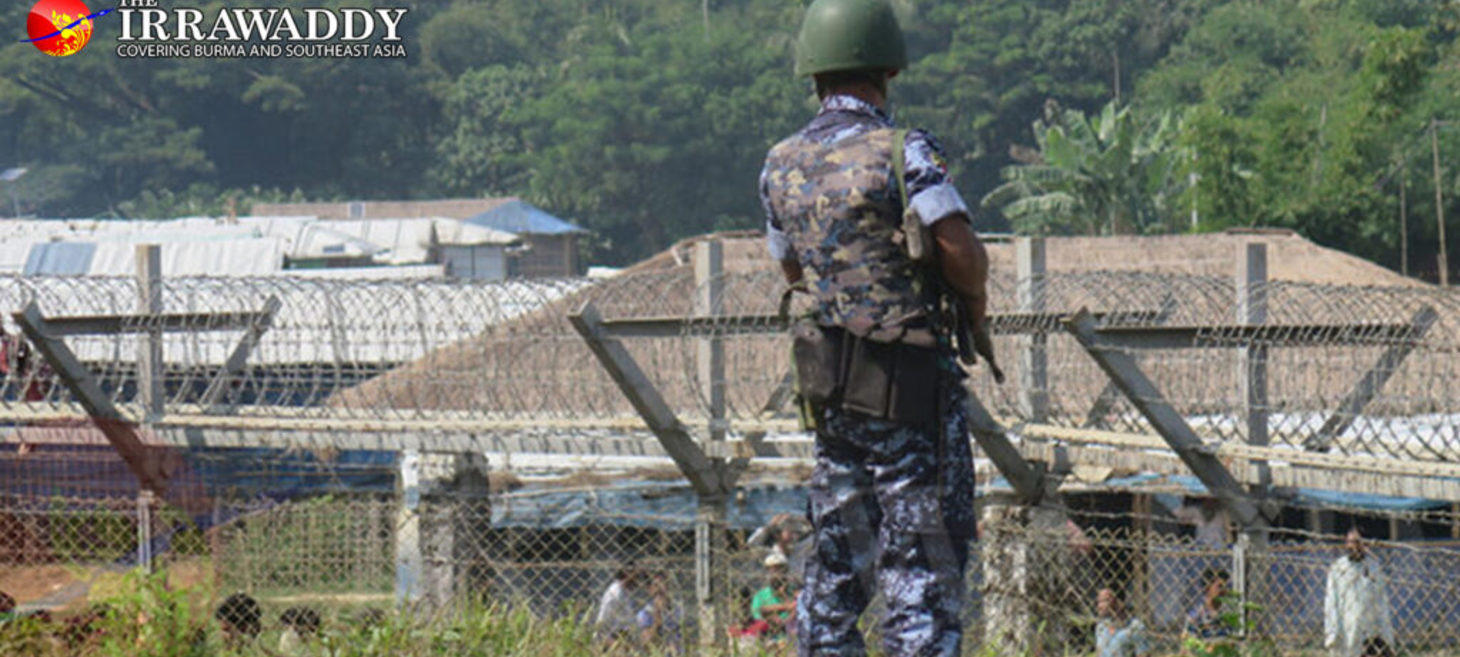
Arakan Army in Push to Seize Maungdaw in Myanmar’s Rakhine
Intense fighting has erupted in Maungdaw town, Rakhine State, as the Arakan Army (AA) wages a relentless offensive against the final junta battalion safeguarding the frontier town. The AA's aggressive assault targets both the headquarters of the 5th Border Guard Police Battalion on Maungdaw's outskirts and junta forces within the town itself. Reports from locals indicate severe casualties among junta soldiers, with many injured or captured, and others retreating into the town to regroup with fellow soldiers and Muslim armed groups aligned with the regime. This escalation comes amidst allegations of forced conscription of Rohingya by the regime and the involvement of Muslim militia groups, including the Arakan Rohingya Salvation Army and Rohingya Solidarity Organization, alongside the junta. The regime's defensive measures, bolstered by air and artillery support, highlight the critical nature of the ongoing conflict in Maungdaw, where the AA has effectively encircled the town and the 5th Border Guard Police Battalion since capturing other junta positions in June.
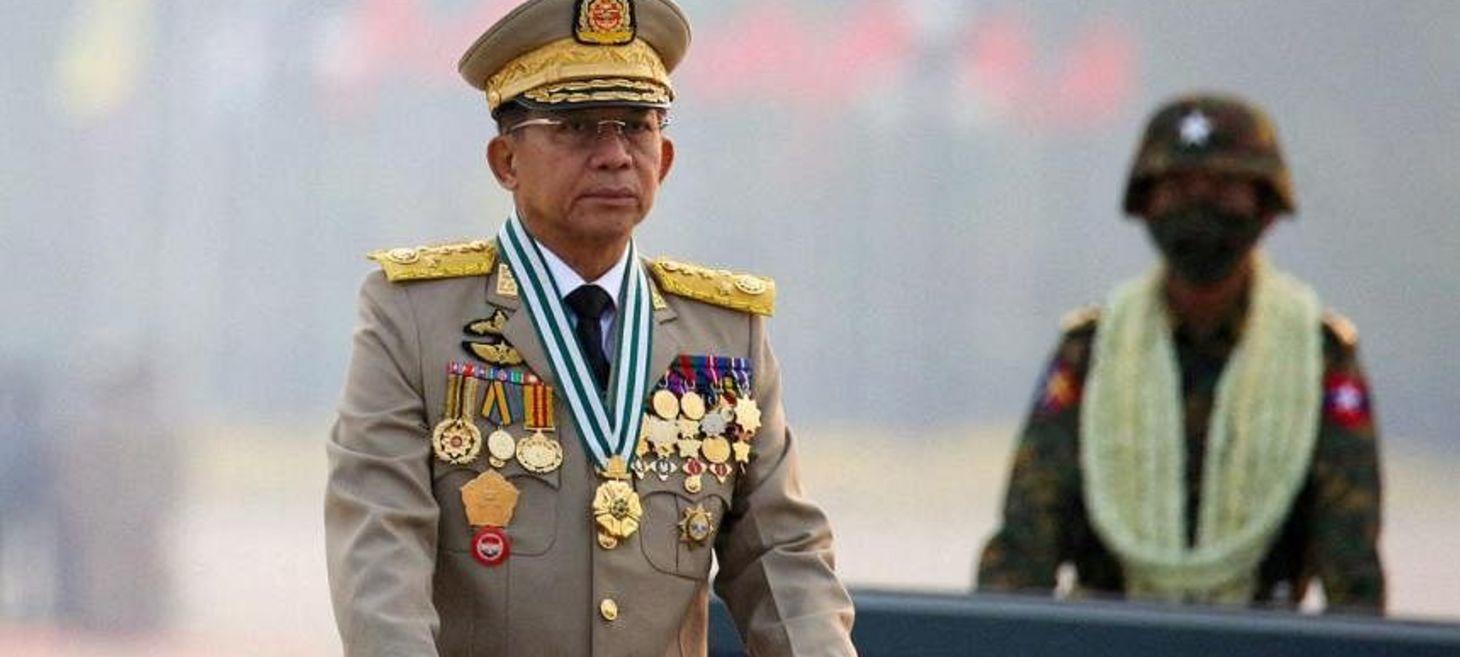
What next for Myanmar’s junta as civil war rages? - The Straits Times
Since the military coup led by Senior General Min Aung Hlaing in February 2021, Myanmar has been engulfed in a civil war, with the junta losing control of much of the country to armed ethnic groups and pro-democracy fighters, prompting concern from neighboring China, which seeks a permanent ceasefire. The conflict escalated after the military ousted the civilian government of Aung San Suu Kyi, sparking widespread protests and violence that evolved into a civil war, with the junta extending emergency rule and delaying promised elections amidst economic hardships and international sanctions. The military's refusal to restore civilian governance has led to intense fighting, particularly in regions like Rakhine State and Shan State, where the Arakan Army and other ethnic groups have made significant territorial gains, challenging the junta's control. Despite the junta's retention of key infrastructure and urban areas, the conflict has expanded, with recent battles focusing on strategic locations like Lashio. The junta, facing international criticism and sanctions, continues to hold power through force, including air strikes, while Aung San Suu Kyi remains imprisoned on politically motivated charges. The conflict, rooted in the military's seizure of power and subsequent crackdown on protests, has seen the loss of 86% of townships to anti-junta forces, affecting the economy and displacing thousands. China, a major stakeholder, mediates for peace but faces challenges in maintaining border security and trade amidst the unrest. The civil war, marked by "Operation 1027" and a ceasefire failure, threatens the junta's grip, despite its control over essential infrastructure and cities. Suu Kyi's imprisonment and the ongoing conflict highlight the complex dynamics of Myanmar's struggle for democracy, with China navigating its interests cautiously.
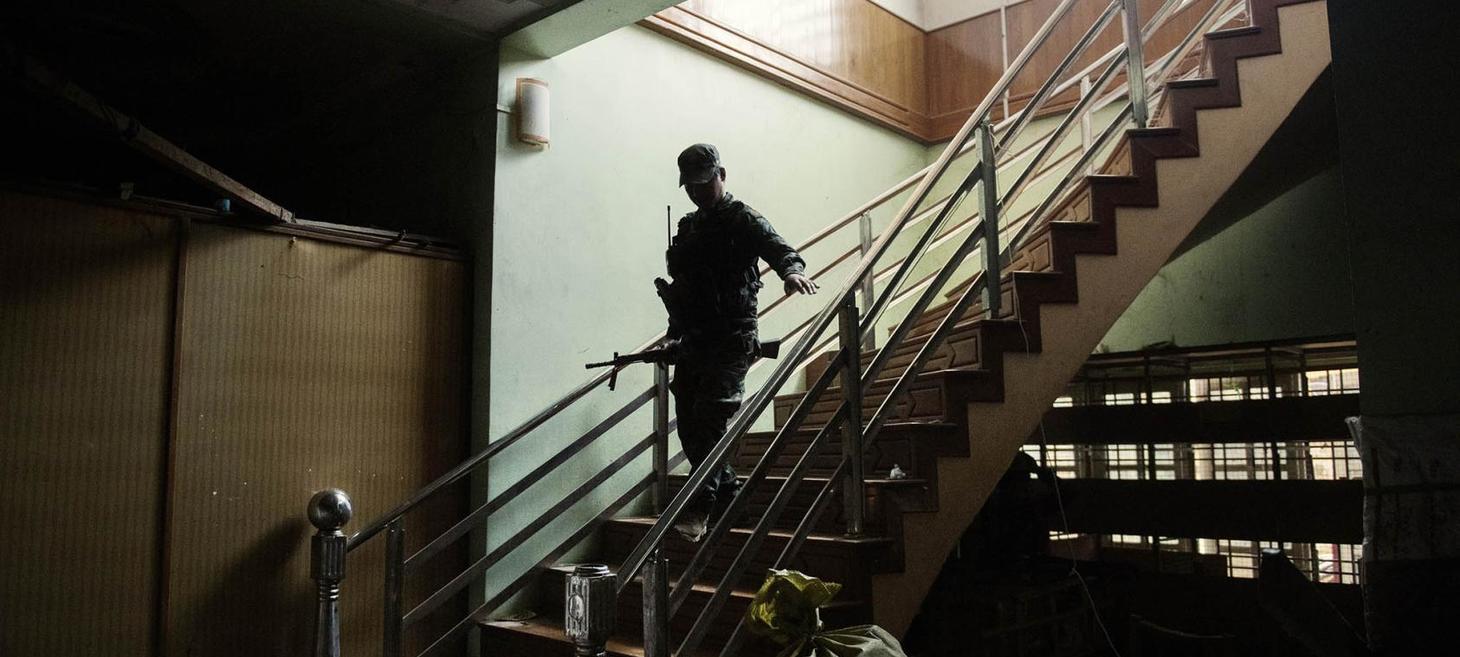
As Myanmar’s Junta Loses Control in the North, China’s Influence Grows - United States Institute of Peace
China's brokerage of talks between Myanmar's military and ethnic armed organizations (EAOs) aimed to restore trade, collapsed, leading to renewed fighting. Despite recognizing China's significant influence, parties understand Beijing prioritizes economic and geostrategic interests over broader peace, potentially leveraging the conflict to strengthen its position. The Three Brotherhood Alliance (3BHA)'s territorial gains and control over key border crossings disrupted China's plans, prompting coercive diplomacy for a ceasefire to protect Chinese interests. However, negotiations faltered amidst military efforts to regain lost territory and consolidate power, leading to the resumption of hostilities. The junta's strategies to manipulate EAO relations and recover territory backfired, strengthening alliances among EAOs and signaling deeper ties with anti-junta forces. Amidst escalating violence, including airstrikes and territorial disputes, China's restoration of utilities to Kokang signaled support for the MNDAA, upsetting the junta. As the military sought Chinese assistance, Beijing's actions indicated a preference for stability through elections and reform, inviting Myanmar officials to high-profile events. The UWSA's mediation and expansion into contested areas highlighted shifting dynamics, with China likely to increase intervention due to the junta's losses. This situation benefits authoritarian consolidation favored by China, raising concerns for regional stability and democracy advocates, as Beijing manipulates the conflict to secure investments and expand influence, undermining ASEAN and challenging US interests in maintaining a free Indo-Pacific region.
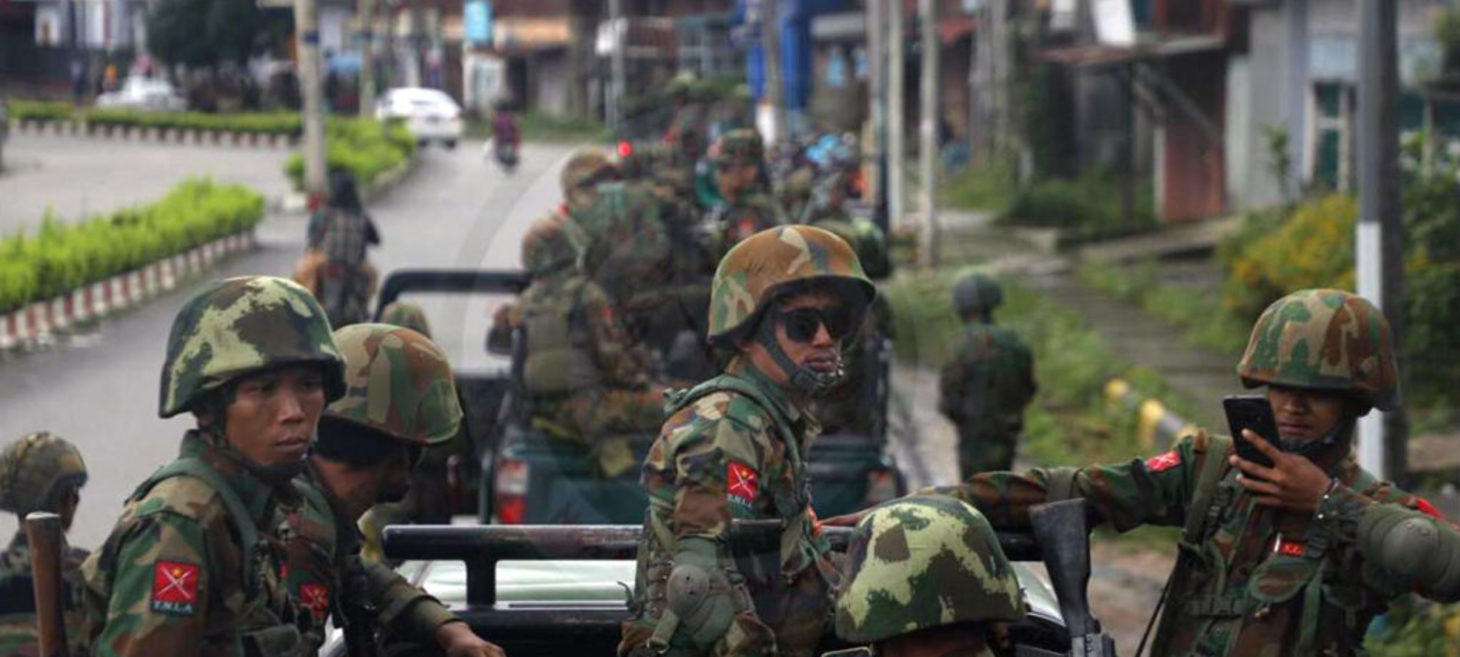
TNLA Completes Capture of Kyaukme Town in Myanmar’s Northern Shan
The ethnic Ta’ang National Liberation Army (TNLA) and allied resistance groups took full control of Kyaukme town, a key location on the Myanmar-China trade route in northern Shan State, on Tuesday after defeating the last remaining junta battalion headquarters. Kyaukme is the sixth town captured by ethnic armies and their allies since Phase 2 of Operation 1027 began on June 25. The TNLA and its allies seized the junta’s Military Operations Command (MOC) 1 and two Light Infantry Battalion (LIB) headquarters, located 1.6 km north of Kyaukme town, resulting in many regime forces being killed or fleeing. Despite airstrikes by the junta, the resistance forces-maintained control, and about 100 remaining junta troops fled to southern Shan State. The TNLA has not yet officially announced the complete seizure of Kyaukme. This offensive is part of a broader campaign by the Brotherhood Alliance, which resumed operations after a Chinese-brokered ceasefire collapsed, leading to the capture of six towns and over 100 junta bases in northern Shan State and northern Mandalay Region.
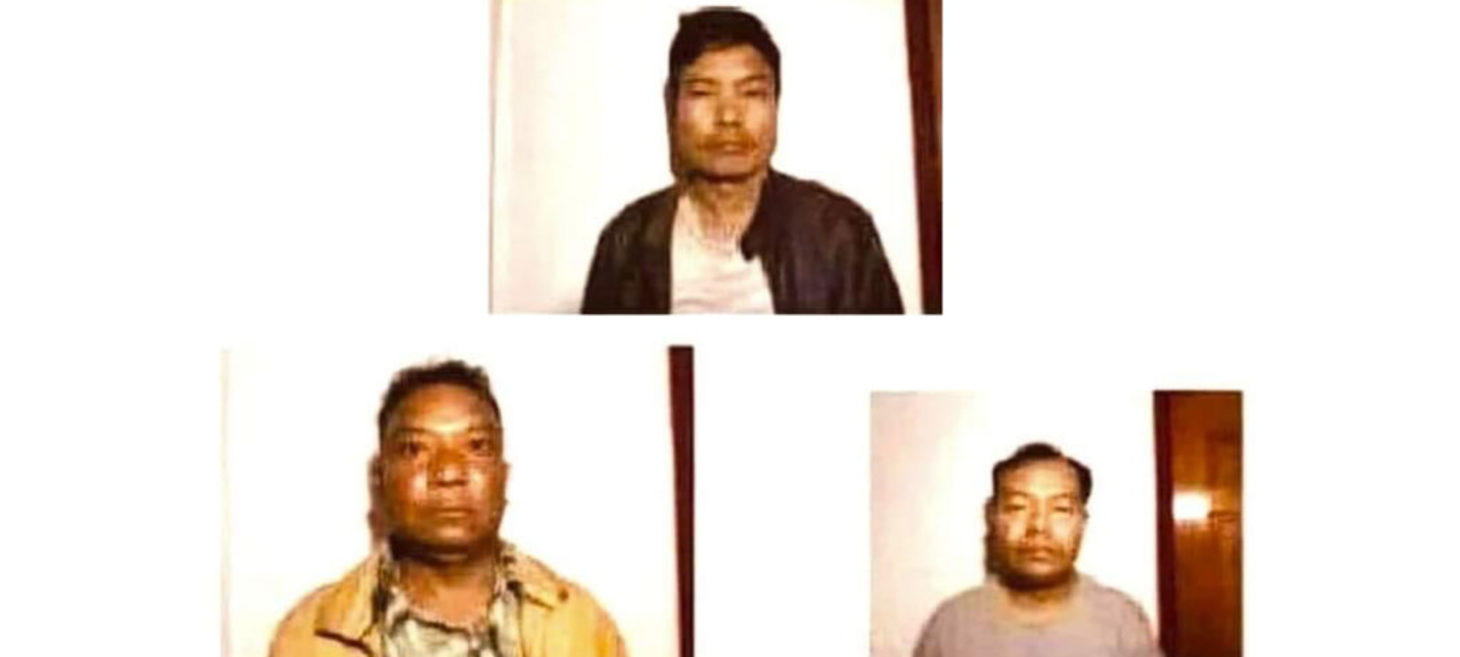
Three Myanmar Junta Generals Interrogated by MNDAA in Lashio
major general and two brigadier generals from the Northeastern Command in Lashio are reportedly being interrogated by the Myanmar National Democratic Alliance Army (MNDAA). The captured officers include former base commander Major General Soe Tint, regional chief Brigadier General Thant Htin Soe, and Military Operations Command 1 chief Brigadier General Myo Min Htwe. Junta spokesman Major General Zaw Min Tun confirmed the regime had lost contact with its northern Shan State headquarters and indicated that senior officers were captured by insurgents. An army defector stated that the detained officers are being questioned about war crimes, with video evidence expected soon. Some officers were captured while attempting to escape in civilian clothes. The fall of Lashio marks the first capture of a major command headquarters since independence, significantly impacting military morale. The MNDAA, part of the Brotherhood Alliance, resumed its offensive on July 3 after a China-brokered ceasefire collapsed, but has not yet completely secured the city.
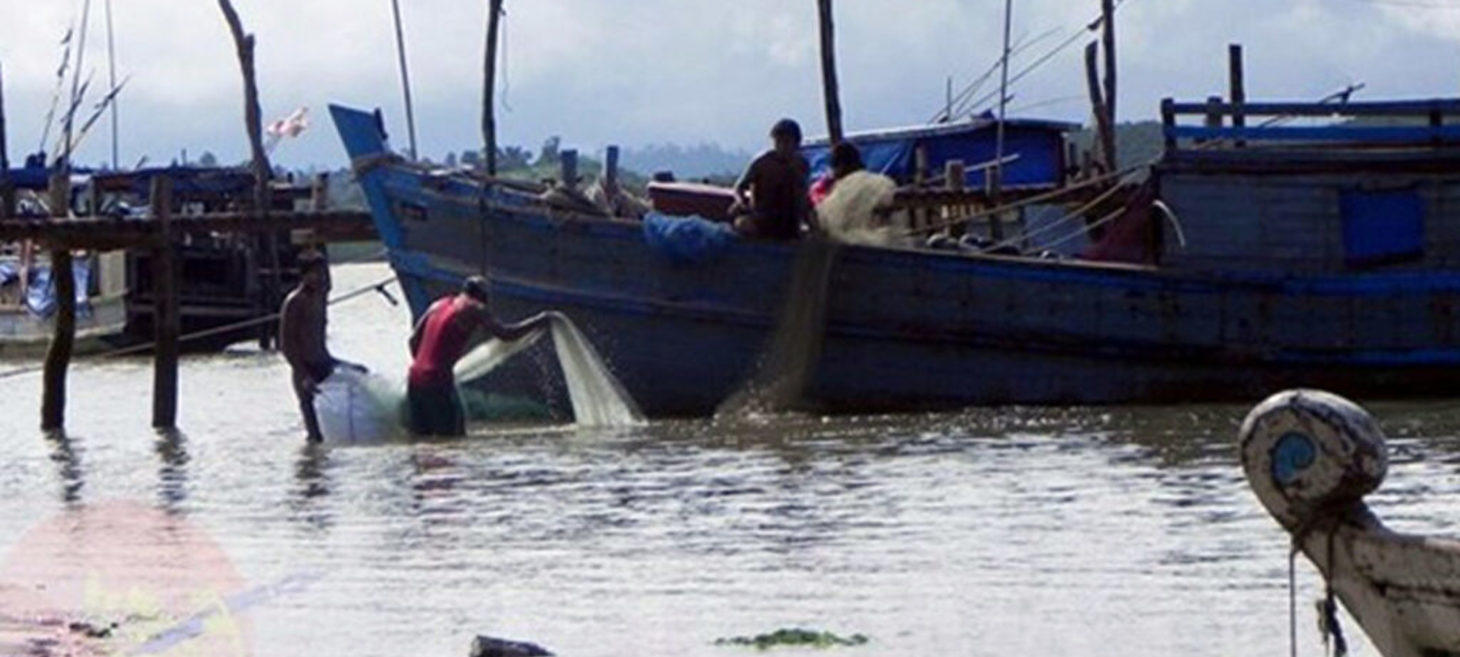
Myanmar Junta Unleashes Artillery Barrage as AA Advances in Southern Rakhine
In southern Rakhine State’s Taungup and Gwa townships, Myanmar regime troops are launching intense artillery barrages day and night to fend off the advancing Arakan Army (AA). This follows the AA's announcement to continue attacking junta positions in Thandwe Township, Taungup, and Gwa. The AA recently took control of most of Thandwe Township, including the airport and key military bases. The junta has reinforced positions in the mountains and other strategic locations. Shelling from junta positions in Taungup has been reported, and junta soldiers have occupied monasteries and ordered nearby residents to leave. Communications, including internet and phone access, have been cut in Thandwe and Ngapali Beach, complicating efforts to obtain updates on the situation.
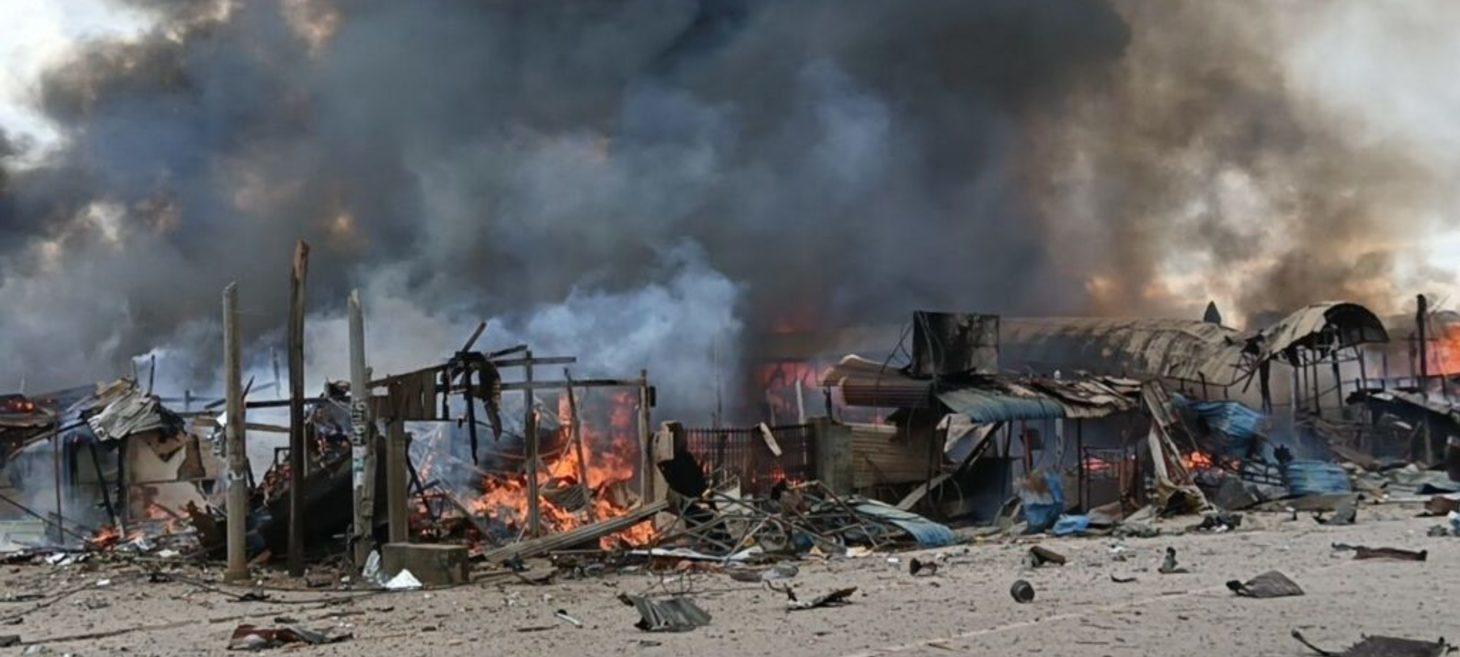
Brotherhood Alliance calls on China to end Myanmar junta’s airstrikes on civilians
An alliance of ethnic armed groups, known as the Brotherhood Alliance, has called on China to intervene and stop Myanmar's military regime from conducting deadly airstrikes in northern Shan State and Mandalay Region. The alliance, comprising the Ta’ang National Liberation Army (TNLA), Myanmar National Democratic Alliance Army (MNDAA), and Arakan Army (AA), accused the military of targeting civilian areas outside combat zones. This plea follows an air raid on a market in Kutkai, controlled by the TNLA, which killed at least six people. Despite a Chinese-brokered ceasefire in January, clashes resumed on June 25, leading to significant territorial gains for the Brotherhood Alliance. In retaliation, the junta has launched airstrikes on civilian areas, causing numerous casualties. The MNDAA reported at least 10 airstrikes in northern Shan State, while airstrikes in Mandalay Region's Singu Township have killed 15 people, including children. The alliance urges international intervention to halt these atrocities.
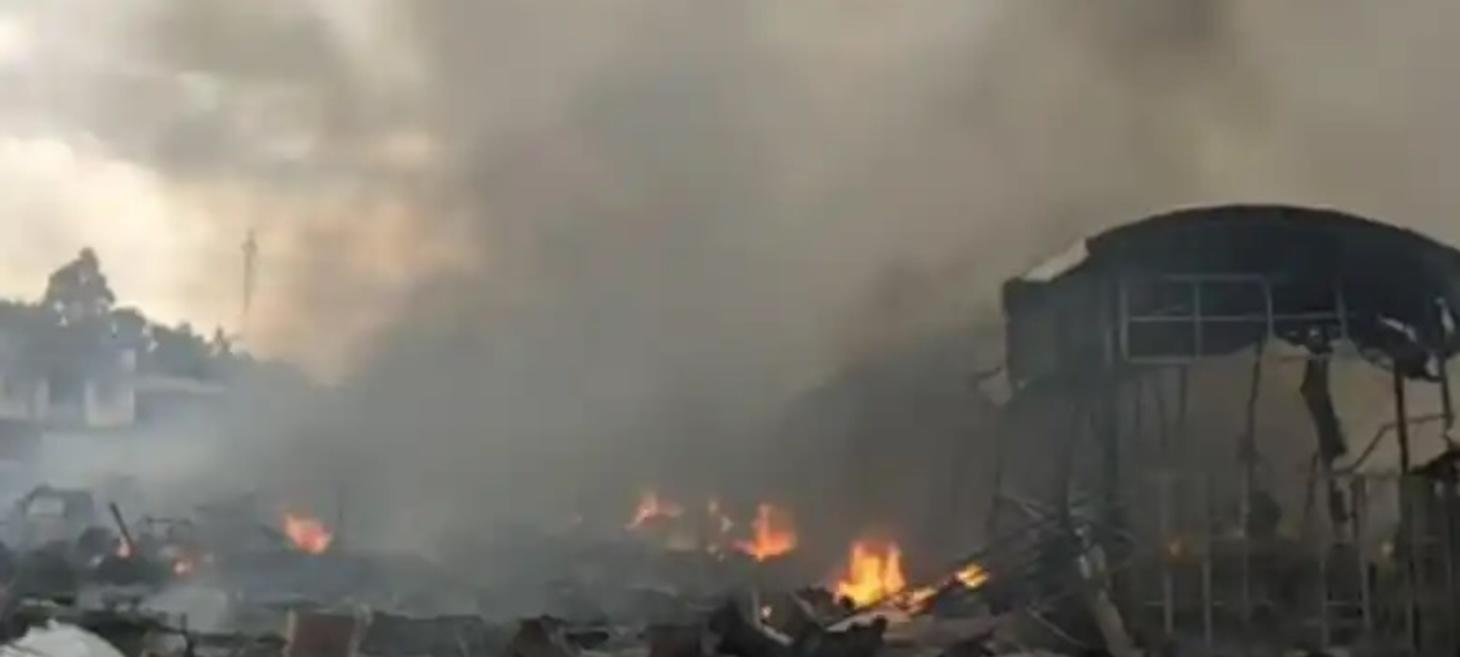
Junta fighter jet deliberately targets market in Kutkai Town, Shan State
On 5 August 2024, a junta fighter jet deliberately bombed the Myoma Market in Kutkai Town, northern Shan State, following reconnaissance by a plane earlier that day. The airstrike, which occurred around 2:00 pm, involved multiple bombs and machine gun fire, causing significant devastation and fires that continued to burn afterward. Although the exact number of casualties is unknown, the attack also damaged the nearby No. 6 Ward. Residents had begun evacuating upon noticing the reconnaissance plane. Kutkai, controlled by the Ta’ang National Liberation Army (TNLA) and allies since January 2024, has a population of over 50,000. The junta has a history of targeting civilian areas in resistance-controlled regions, as seen in previous attacks on markets in Sittwe and Sane Town earlier in 2024.
Conscription
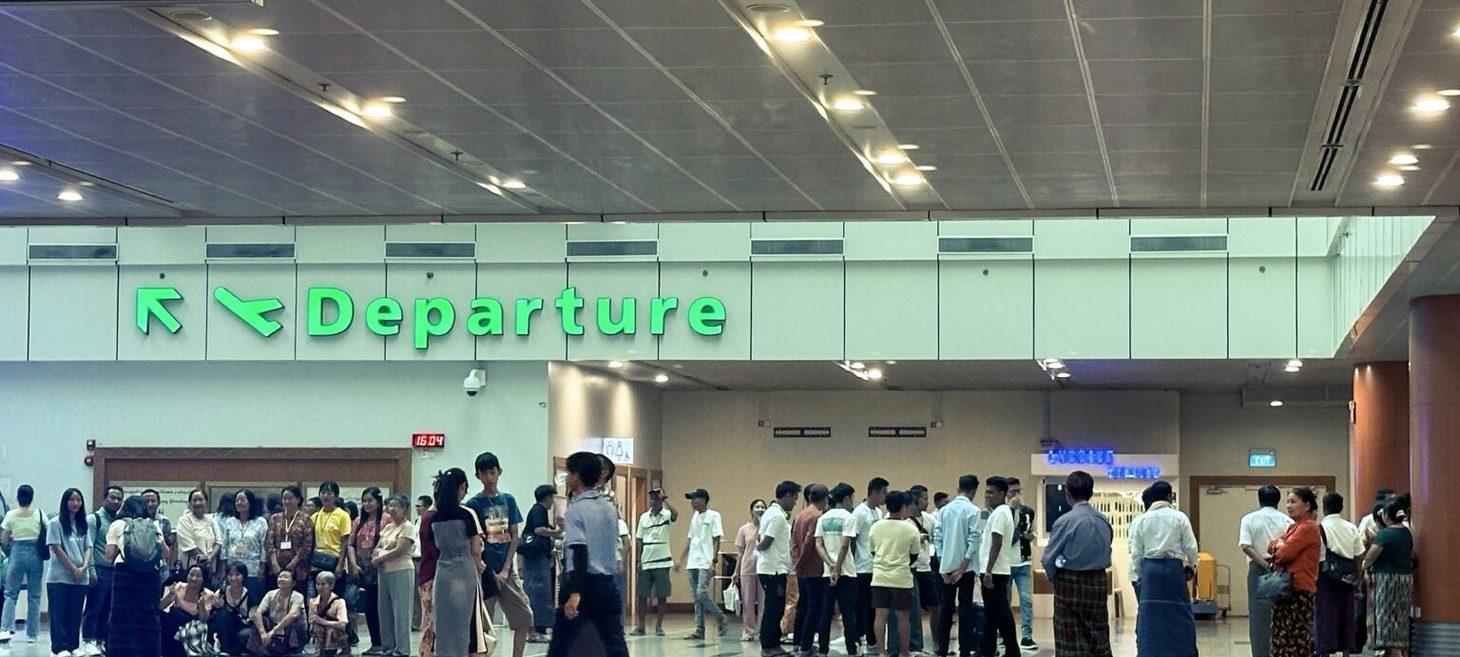
Authorities block more than 40 workers from leaving Myanmar at Yangon airport
Over 40 individuals attempting to leave Myanmar via Yangon's international airport were detained on suspicion of evading mandatory military service, marking a shift in enforcement tactics towards individual travelers, previously focused on employment agencies facilitating overseas work. This incident highlights the junta's efforts to stem the flow of labor abroad amidst a backdrop of military recruitment difficulties and stringent new travel and work restrictions, particularly targeting those within the conscription age range. The detained workers, en route to various destinations including Japan, had utilized services from agencies collaborating with junta-controlled entities, indicating a broadening scrutiny over outbound labor migration. The junta's introduction of new regulations for workers in Thailand under a memorandum of understanding system further complicates matters, requiring proof of remittance through approved channels, a policy criticized for its restrictive nature and potential to push workers towards illegal overstays rather than comply with burdensome documentation processes.
Economy
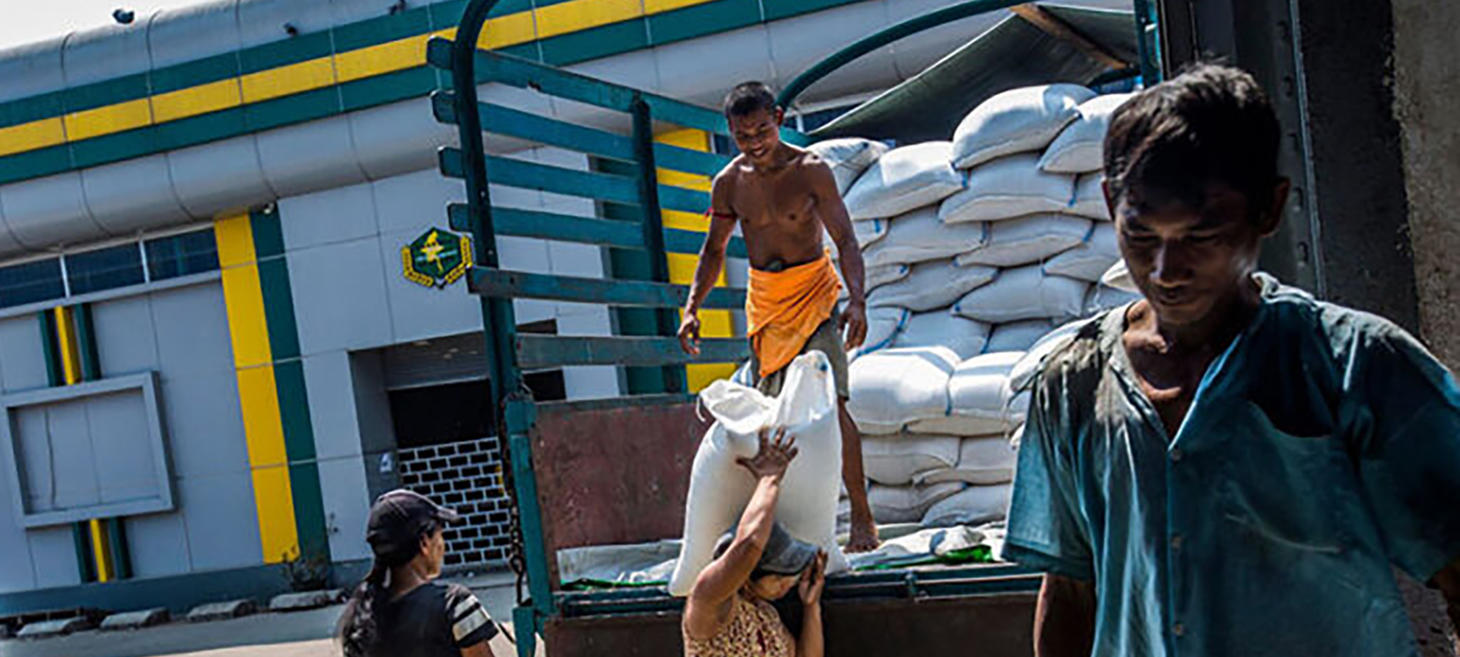
Over 100 Exporters Face Prison in Myanmar as Junta Escalates Forex Crackdown
In Myanmar, over 100 companies have recently had their export licenses revoked due to allegations of not converting US dollar earnings into the local currency, kyat, with an additional 12 companies ordered to convert a total of US$17 million within two weeks. This action comes amid a broader economic crisis, including a significant devaluation of the kyat and restrictions on foreign currency transactions imposed by the junta's Central Bank of Myanmar. These measures have led to a resurgence of the black market for currency exchange and have prompted criticism from economists who argue that such policies are primarily aimed at funding the military's activities rather than stabilizing the economy. Despite these challenges, the junta continues to enforce strict forex controls. It has begun promoting barter trade as an alternative, a move that has reportedly caused confusion among businesses and is expected to further complicate trade operations in the country.
Foreign Affairs
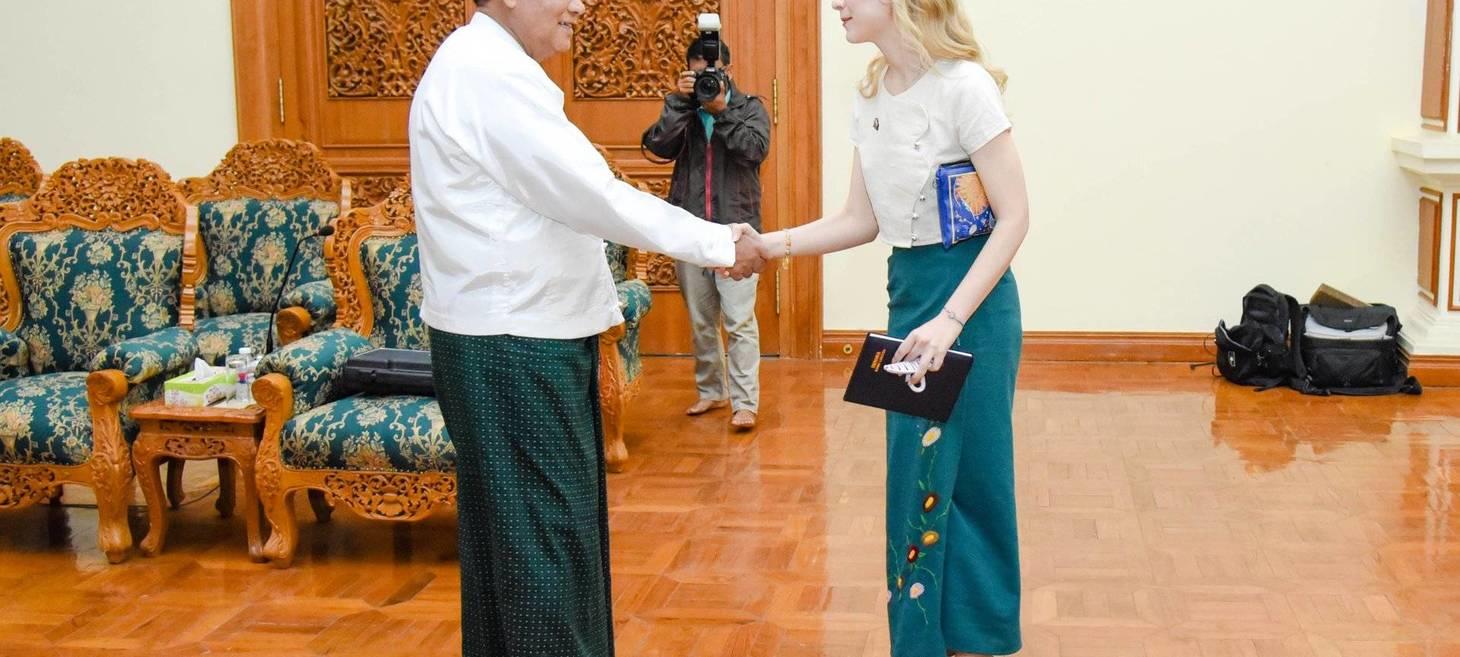
Chair of Myanmar military’s proxy party appeals to Russia for support against ‘terrorism’
Shortly before the Myanmar military's significant loss of the Northeastern Regional Military Command, Khin Yi, the Union Solidarity and Development Party (USDP) leader, sought Russian support in an interview with Rossiya Segodnya. Amidst ongoing successful assaults by the Myanmar National Democratic Alliance Army (MNDAA) and its allies, Khin Yi urged Russia to recognize these groups' actions as terrorism and collaborate with Myanmar's military to combat them. This plea for enhanced "anti-terrorism" assistance aligns with the USDP's pro-military stance. It comes at a critical time when Myanmar's military faces increasing threats from ethnic armed groups and resistance forces, emphasizing the regime's reliance on international allies like Russia to bolster its position against internal challenges.

China Playing Both Sides of Myanmar Conflict to Its Advantage - JAPAN Forward
Since the military coup in Myanmar in 2021, China has strategically capitalized on the political instability to enhance its influence and interests in the region, particularly in northern Myanmar along the extensive shared border. The Tatmadaw's takeover has led to a weakened military state, embroiled in ongoing conflicts, notably with the Three Brotherhood Alliance, which has been actively opposing the junta in northern Shan State. This alliance's operations, tacitly approved by China, have allowed Beijing to gain significant sway in this area. Concurrently, the junta's reliance on China has deepened, evidenced by its dependence on Chinese intervention, investments, and political support, including backing at the UN. This situation has enabled China to fortify its strategic position, supporting ethnic alliance forces while officially calling for peace and conducting military exercises near the border to assert its influence amidst the ongoing conflict. This dual approach underscores China's complex role in Myanmar's continuing crisis, leveraging the turmoil to bolster its geopolitical and economic stakes in the region.
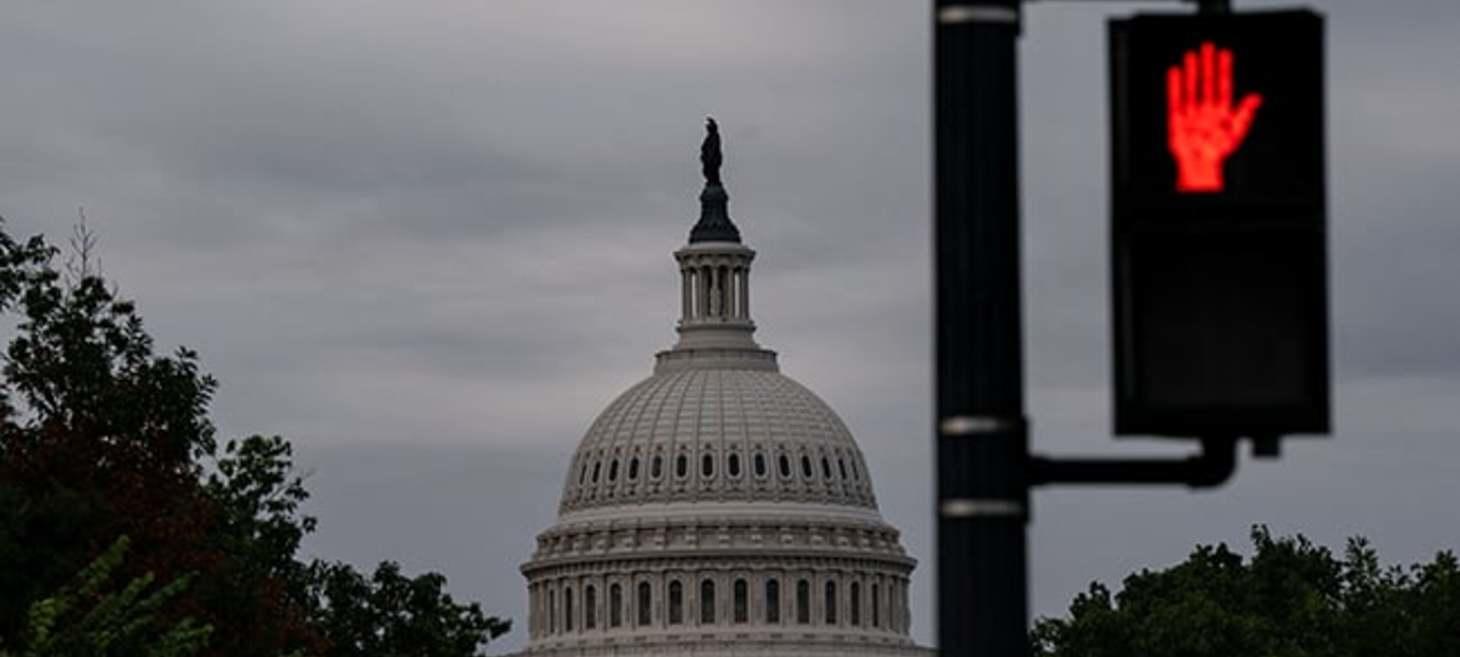
Five U.S. senators call for renewed support for democracy in Myanmar
Five U.S. Senators urged Secretary of State Anthony Blinken in a letter dated July 30, 2024, to bolster U.S. support for democracy in Myanmar amidst concerns over a potential prolonged conflict leading to a fragmented state. They advocated for a revitalized strategy to empower pro-democracy groups and ethnic organizations crucial for establishing a future democratic government with an inclusive federalist structure. The letter highlighted the importance of engaging with the National League for Democracy (NLD), the National Unity Government (NUG), and ethnic organizations controlling significant territories. It also suggested leveraging multilateral diplomacy with ASEAN and key Indo-Pacific partners like Thailand, Japan, and India to counter Chinese influence and support resistance groups. Additionally, the senators called for revisiting sanctions against Myanmar, targeting sectors like aviation fuel, and expressed concerns over the slow implementation of non-lethal assistance provisions under the Burma Act, urging reconsideration to better aid resistance forces facing junta attacks.
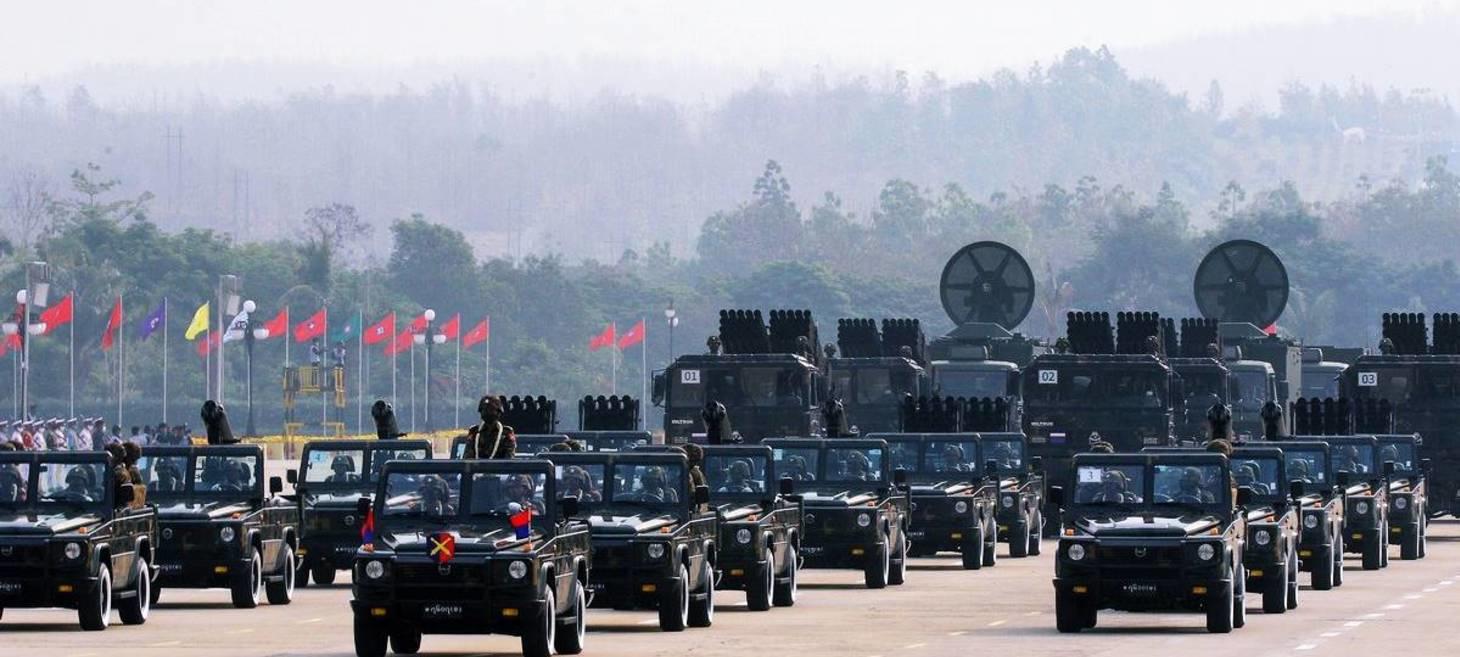
Thailand aims to curb banking linked to Myanmar’s arms trade - Thailand Business News
The United Nations' special rapporteur on human rights in Myanmar, Tom Andrews, has applauded Thailand's initiative to form a task force aimed at scrutinizing Thai banks' transactions with Myanmar's military regime, particularly those related to arms deals. This move comes in response to a report that highlighted Thai banks' significant role in financing the regime's arms purchases, despite international sanctions that have shifted most of these transactions from Singapore to Thailand. The task force, supported by regulatory pressures, may challenge the regime's ability to secure alternative financing for arms, potentially impacting its capacity to commit human rights violations. Thai banks, notably Siam Commercial Bank, facilitated over $100 million in military procurement transactions in 2023, contributing to ongoing abuses. The Bank of Thailand has instructed financial institutions to comply with Financial Action Task Force (FATF) sanctions and conduct enhanced due diligence for high-risk country transactions to prevent money laundering and terrorism financing. Andrews hopes this task force will follow Singapore's example in curtailing arms-related transactions with Myanmar's military, addressing the crisis urgently. However, the regime may explore alternative means for transactions, facing increased costs and limitations.
Government Media Sources
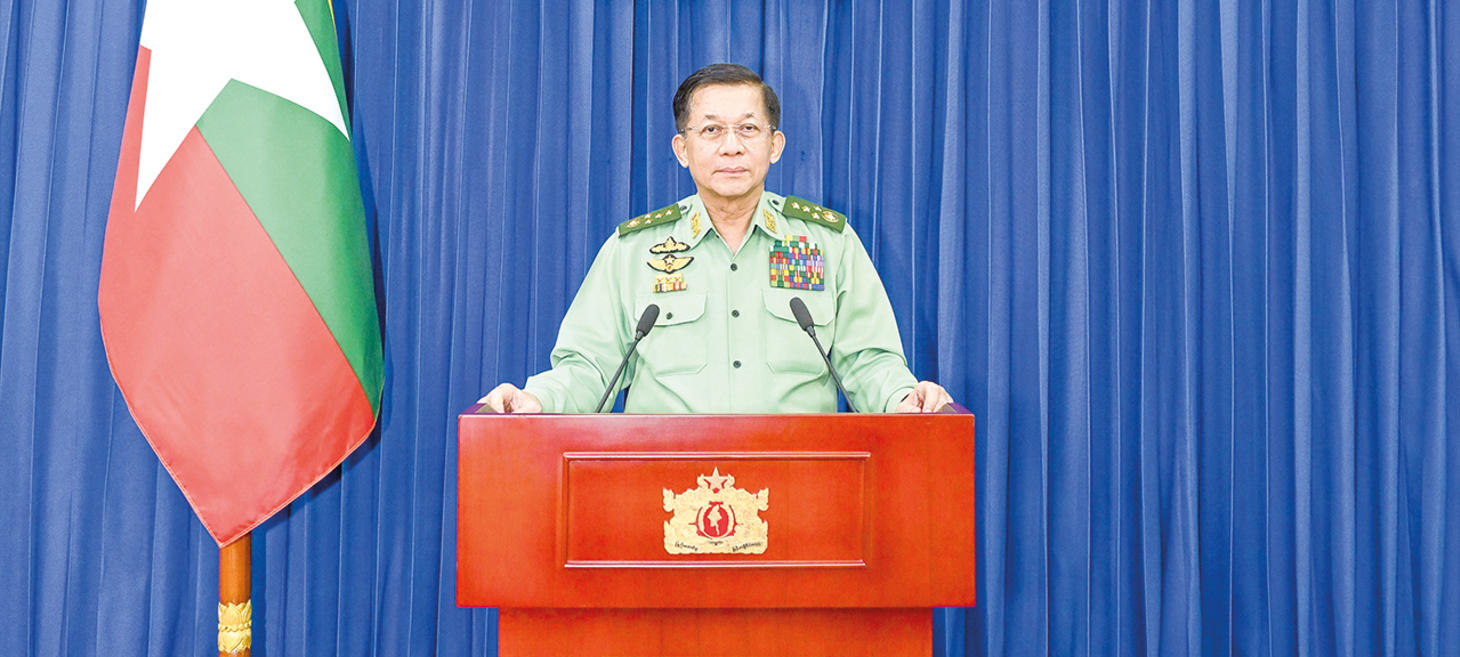
The speech delivered by Chairman of the State Administration Council Commander-in-Chief of Defence Services Senior General Min Aung Hlaing on security conditions of the State
The statement from the Myanmar military leadership outlines the current tumultuous situation in the country, attributing the instability to alleged voting fraud by the NLD party in the 2020 elections. This purported fraud led to the military's takeover and the formation of the State Administration Council, which includes both military and civilian members, with a declared aim to conduct future elections. The narrative describes a transition from peaceful protests to armed riots, influenced by extremist NLD members and youth indoctrinated by ethnic armed organizations (EAOs). These groups, including the MNDAA, TNLA, and AA, have reportedly escalated their military actions, refusing peace offers and attacking military and civilian targets, which has led to significant social and economic disruption. The military claims are terroristic, aiming to destabilize the state and expand territorial control while also accusing foreign influences of exacerbating the conflict. The statement emphasizes the military's role in defending the nation's stability and sovereignty, calling for unity and support from the populace to restore peace and maintain Myanmar's independence.
Military
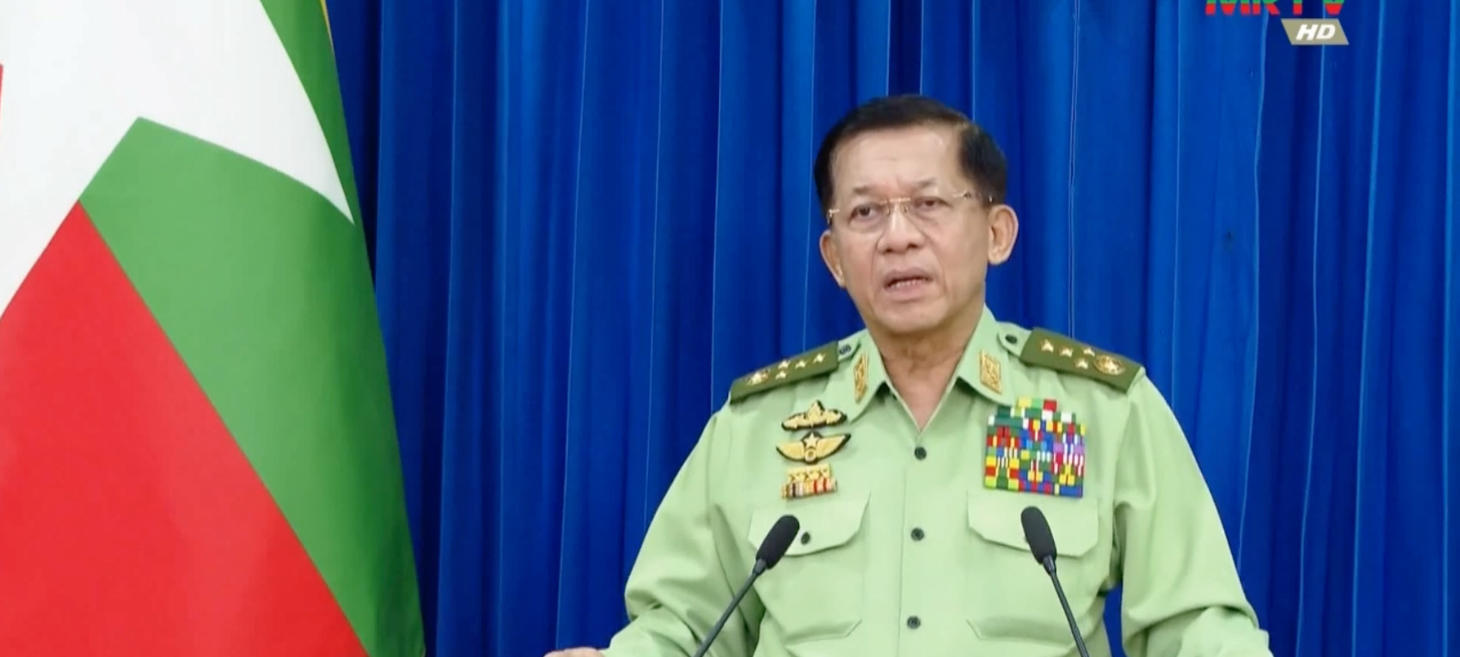
Junta chief blames foreign powers for military losses
Myanmar’s military junta chief, Senior General Min Aung Hlaing, accused foreign governments of aiding ethnic armed groups in Shan State, attributing recent military defeats to external support. Speaking on state-run television, he alleged that neighboring China and Thailand have been supplying advanced weaponry and technology to the Myanmar National Democratic Alliance Army (MNDAA) with the help of foreign experts. He expressed concerns about sophisticated weapons manufacturing facilities along the Myanmar-China border and pledged to investigate the origins of these resources. Meanwhile, the MNDAA announced the successful seizure of the Northeastern Regional Military Command headquarters in Lashio, capturing nearly 500 prisoners, including injured soldiers and their families, following a month of intense fighting.
Politics
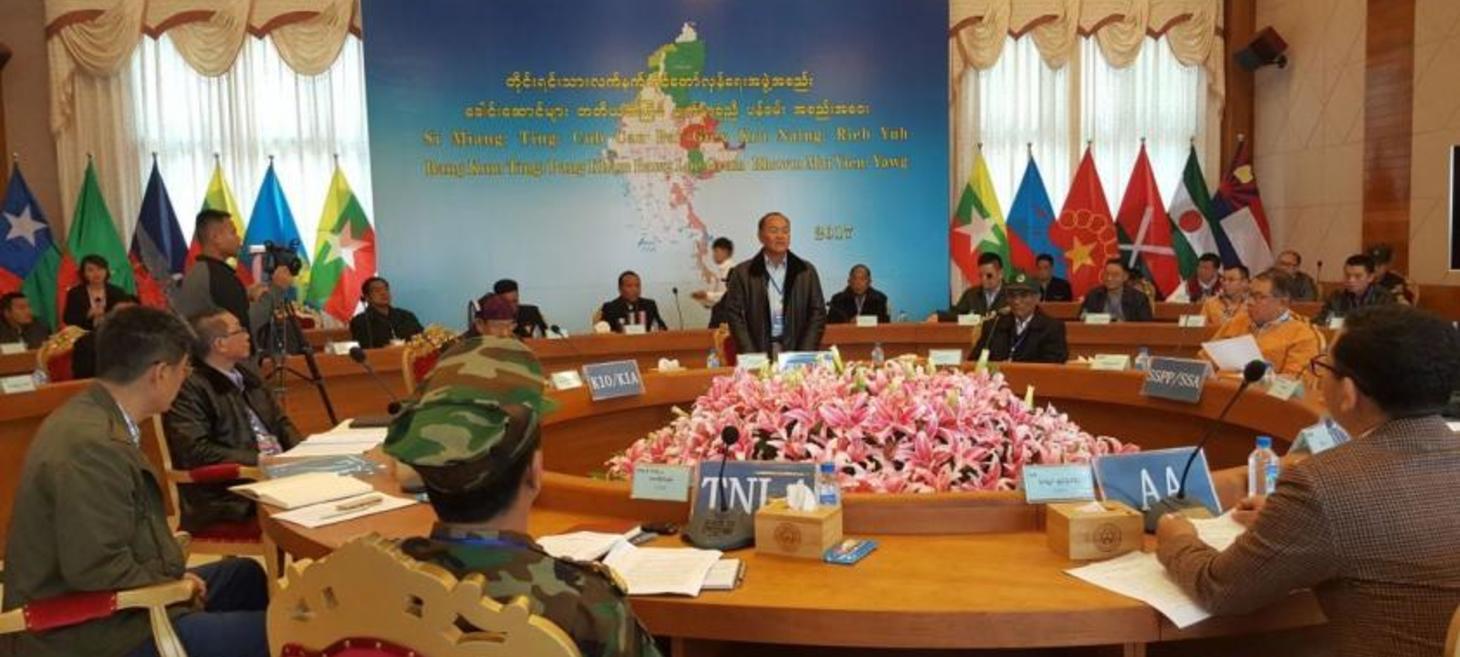
IN THE AFTERMATH OF LASHIO CAPITULATION: Will FPNCC fill in the power vacuum in Northern Shan State?
Following the fall of the junta's Lashio North Eastern Command, speculation mounts about potential domino effects leading to the collapse of remaining military commands, emphasizing the urgency to address the power vacuum, particularly prioritizing human security and peace for the civilian population caught amidst warring factions. The question of who should assume control—whether ethnic armed organizations (EAOs) or the Federal Political Negotiation and Consultative Council (FPNCC)—remains contentious, given the complex interplay of territorial disputes and overlapping interests among various groups. Amidst this turmoil, the silent majority yearns for stability and peaceful coexistence, underscoring the necessity for a collective leadership approach under the FPNCC, aimed at caretaking and administration until a comprehensive political settlement can be achieved nationwide. This transitional period calls for restraint from territorial expansionism and a unified effort towards establishing a federal democratic union, with the upcoming meeting between the Three Brotherhood Alliance (3BHA) and the junta offering a potential avenue for proposing a truce and addressing the power vacuum in Northern Shan State.
Protests
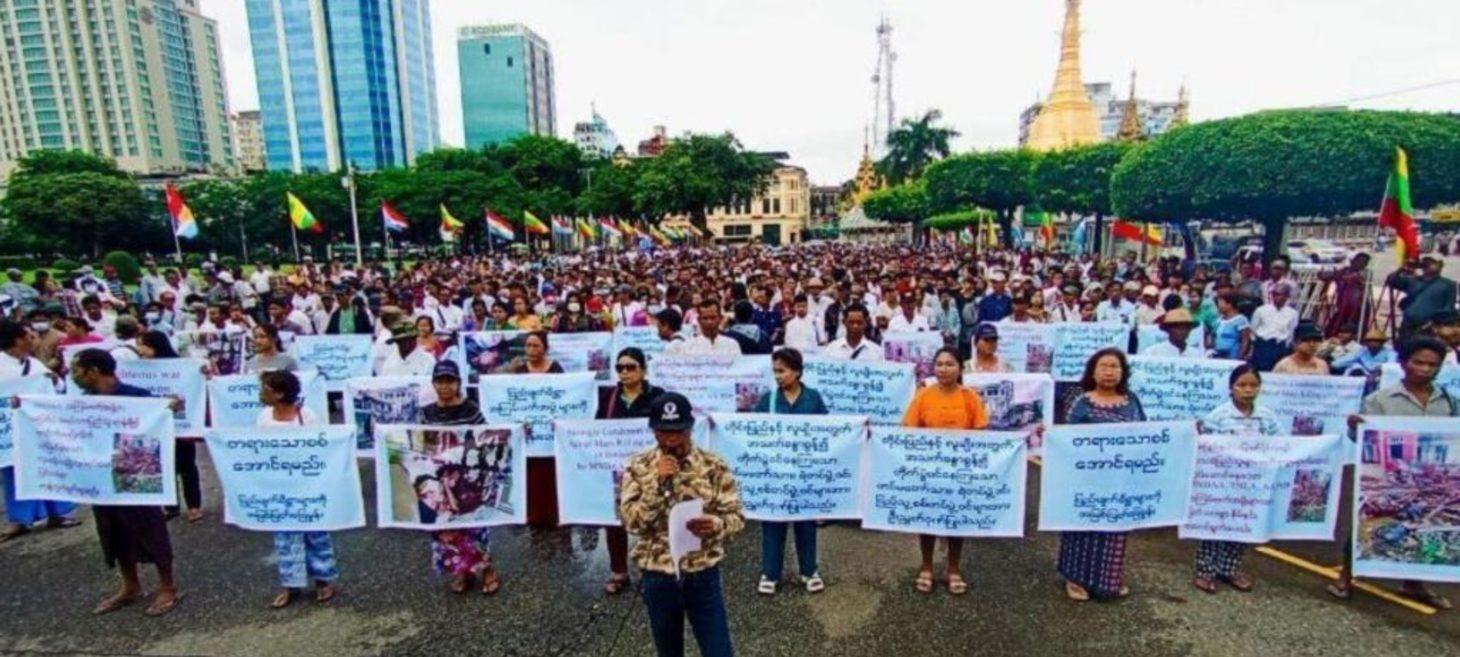
Stung by defeat in Lashio, Myanmar junta stages rallies in Yangon and Naypyitaw
Hundreds of regime supporters gathered in Yangon and Naypyitaw on Tuesday to protest the takeover of Lashio, northern Shan State's largest city, by the Myanmar National Democratic Alliance Army (MNDAA). The ethnic Kokang armed group and its allies claimed full control of Lashio after overrunning the junta’s Northeastern Regional Military Command headquarters on Saturday. This defeat prompted the regime to accuse unnamed "foreign powers" of backing the MNDAA and other "extremist" groups. At a rally near Sule Pagoda in Yangon, protesters condemned the MNDAA for civilian deaths and praised junta soldiers for defending the city, with banners calling for the eradication of "extremists and anarchists."
Sanctions
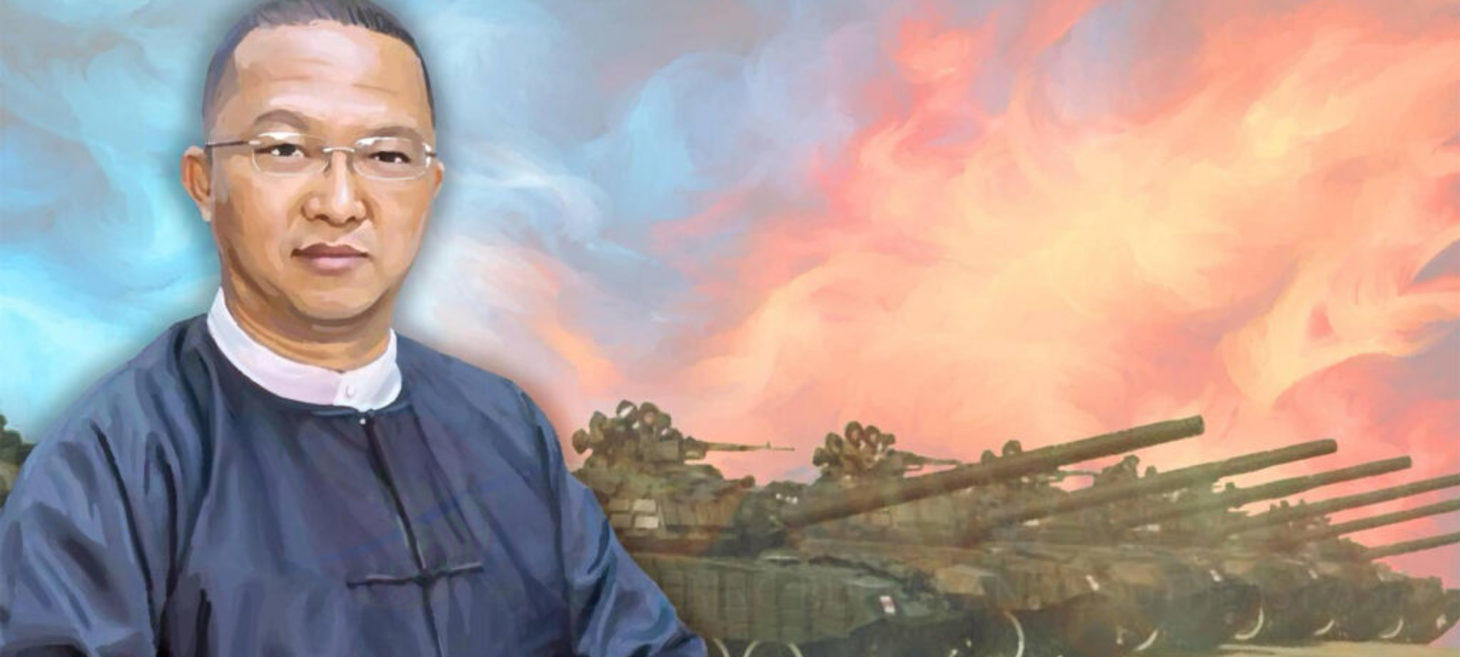
Son of Former Regime’s ‘Ecotourism Minister’ Now Supplies Arms to Current Junta
In Myanmar, the deep-rooted connections between influential businessmen and military generals span generations, exemplified by Sit Taing Aung, a prominent arms supplier to the junta, whose ascent mirrors his father Aung Phone's historical ties to the regime. Aung Phone's legacy in the forestry sector and his alliance with tycoon Tay Za laid the groundwork for his sons' ventures, including Sit Taing Aung's diversification into various sectors under the Suntac Group. Despite adopting a professional facade through initiatives like forestry seminars, Sit Taing Aung's core business interests, particularly in arms manufacturing and supply, have drawn international scrutiny and sanctions. His network extends to major arms suppliers and involves importing weapons and aircraft parts, highlighting the intricate web of military-civilian relations that perpetuate Myanmar's complex political and economic landscape.
Telecommunications
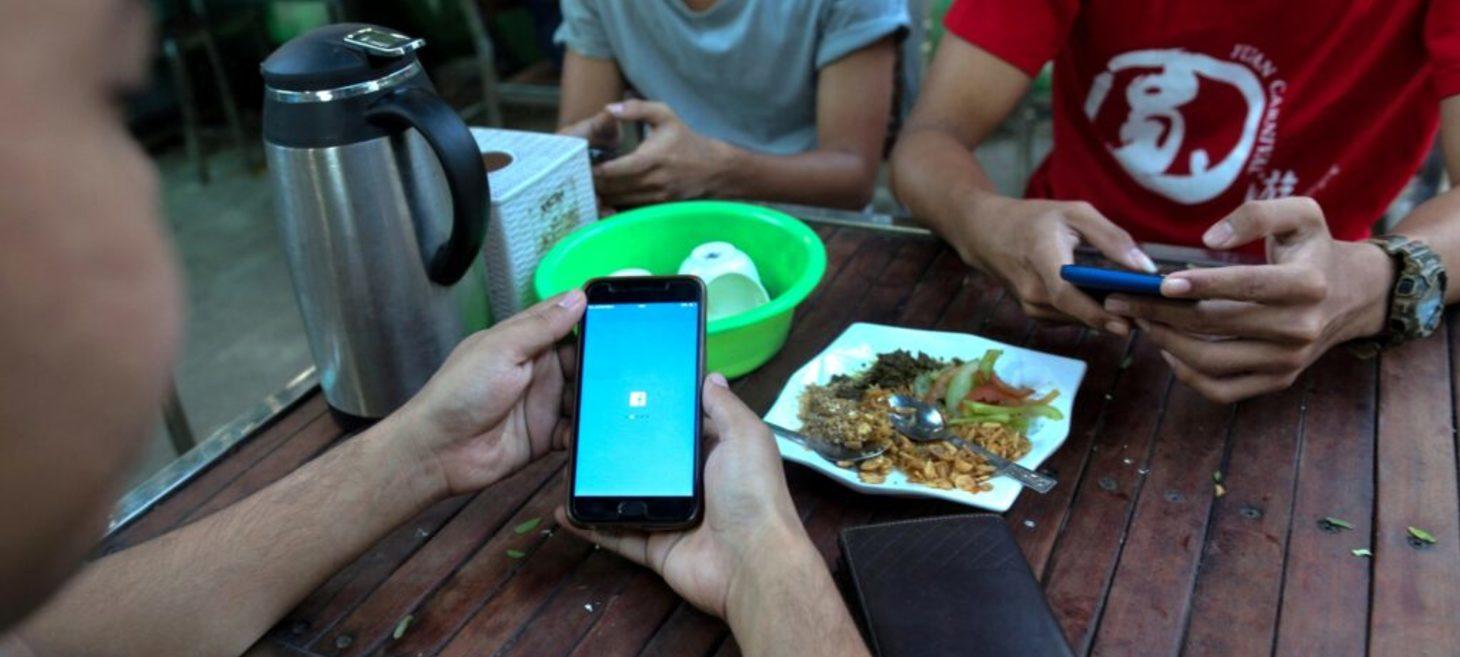
Cat and mouse: Myanmar netizens find cracks in draconian VPN ban
Over the past two months, Ko Thurein, a Yangon-based businessman, has seen his online clothing sales revenue drop significantly due to the military regime's ban on VPNs, which forced him to stop his live sales on Facebook out of fear of repercussions. The junta's crackdown on VPNs and attempts to block encrypted messaging apps like Signal are part of a broader trend of internet restrictions that began after the military seized power in February 2021. These measures, aimed at stifling dissent, have also severely impacted small businesses in Myanmar that rely on social media platforms like Facebook. The demand for VPNs surged after the coup, but recent technological advancements, aided by Chinese companies, have enabled the regime to enforce the ban more effectively. Despite this, some VPN networks remain operational due to technological gaps and the adaptability of VPN providers, though using them now carries greater risks. The regime's efforts to control internet access include deploying Secure Web Gateways and monitoring software developed by Chinese companies, with local conglomerate Mascots Group also allegedly involved. The crackdown has made it harder for resistance groups to raise funds and share information, while ordinary citizens have had to find new ways to stay connected. The junta's attempts to promote its own social media platform, MySpace, have largely failed due to public distrust and resistance. Despite the regime's efforts to control information, the public continues to seek alternative sources, resisting the military's propaganda.

Myanmar Junta’s Internet Controls Expose Citizens to More Cyber Threats
Since the 2021 coup, Myanmar's State Administration Council (SAC) has severely restricted internet access, including blocking Facebook and other communication platforms to control information flow and hinder resistance efforts. Consequently, many citizens turned to VPNs to bypass these restrictions, but the junta has recently started blocking VPNs as well. This crackdown has led to increased phishing attacks, exposing citizens to cyber threats. Despite these measures, the junta's efforts to control digital communication have not fully succeeded, as people continue to seek alternative ways to stay connected. The situation highlights the urgent need for international intervention to address the broader issue of digital rights violations by the Myanmar junta.
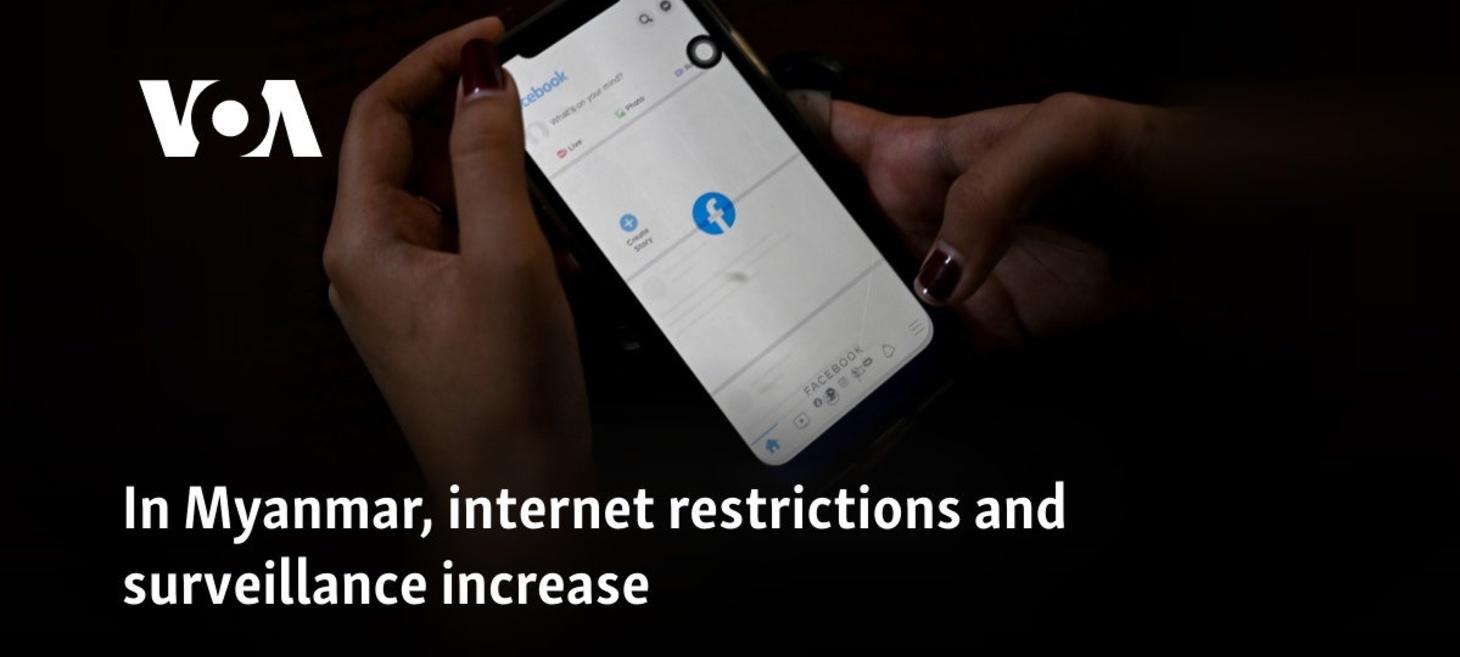
In Myanmar, internet restrictions and surveillance increase - Voice of America - VOA News
A recent report by Athan Myanmar reveals that restrictions on phone and internet services, along with increased surveillance, have isolated large parts of Myanmar from outside information. Over 80 townships have experienced service cuts this year, and at least 70 people have been arrested for criticizing the military. The internet is either blocked or slowed in various regions, making it difficult to access news and social media. The military is also actively blocking VPNs, which are crucial for bypassing these restrictions. This censorship poses significant threats to press freedom, activism, and public accountability. The military's actions have severely impacted daily life and human rights, with Myanmar ranking poorly in global freedom and press indices.